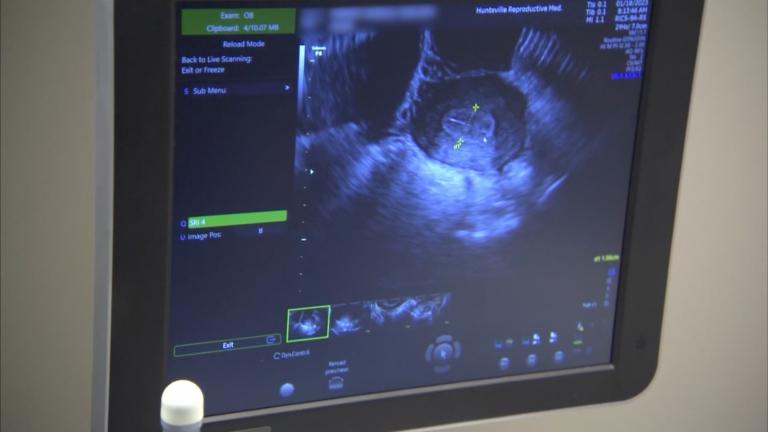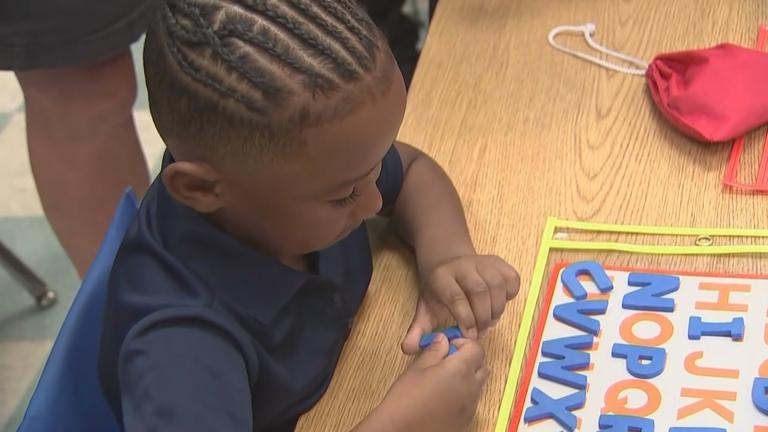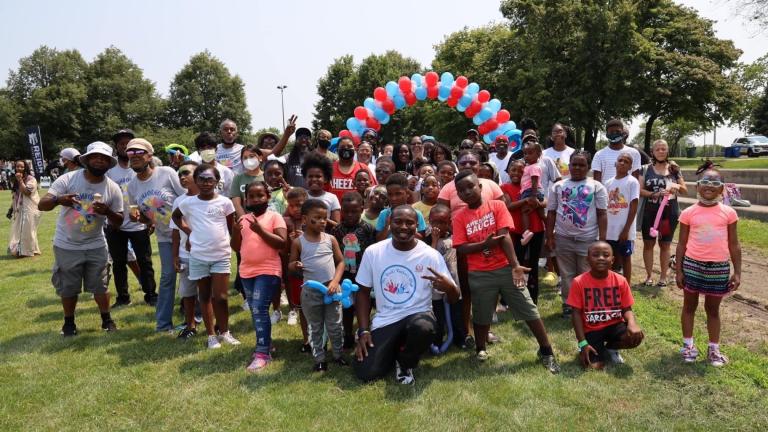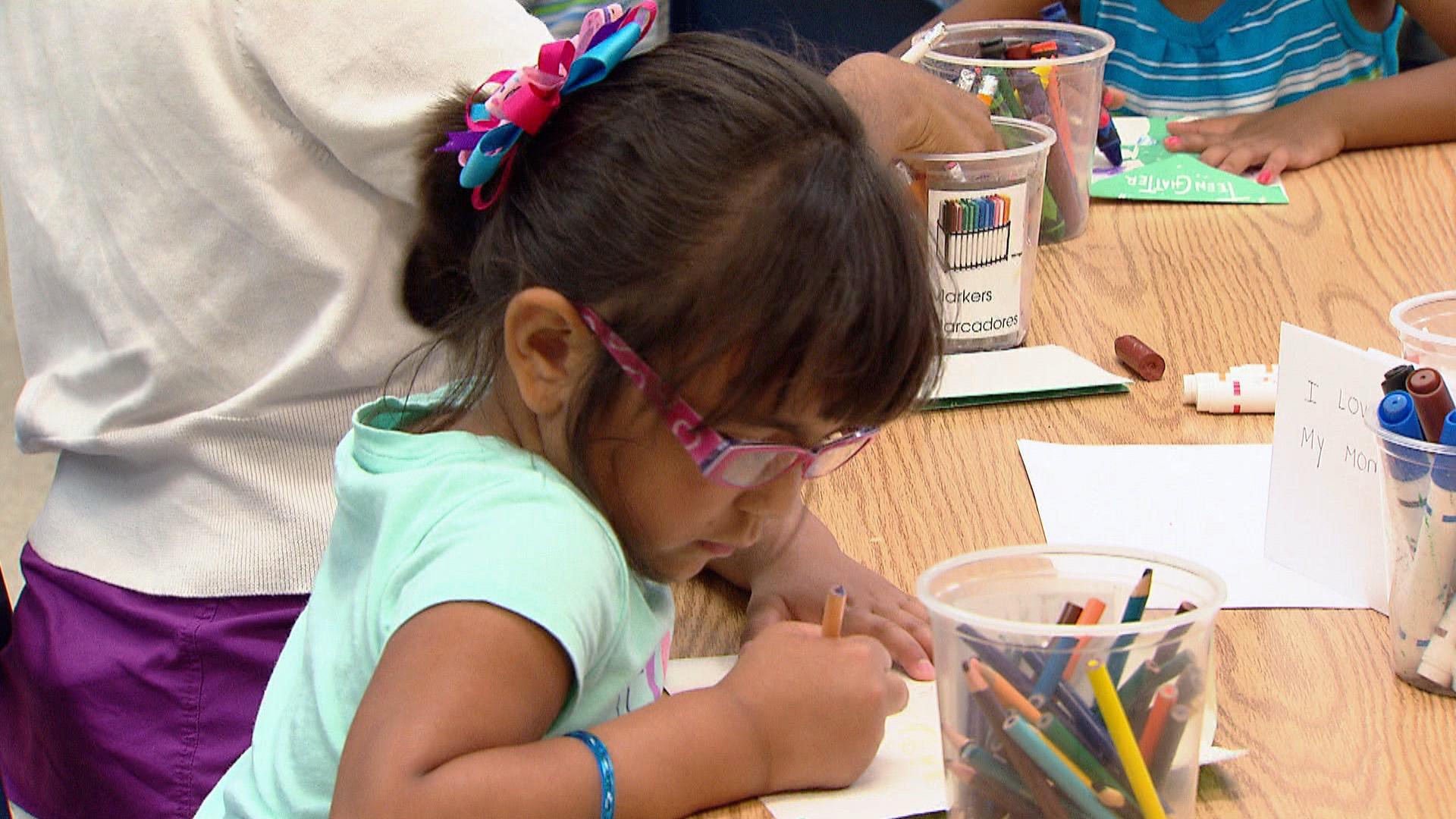 (WTTW News)
(WTTW News)
School’s out for the summer. But Little Village resident Jessica Suarez Nieto is already preparing for the start of the next academic year as she searches for child care options for two of her young children.
“It’s difficult,” said Suarez Nieto, a Chicago Public Schools middle school mathematics teacher in Little Village. “It’s become so unaffordable to find child care that’s reliable and that you can trust.”
As an example, Suarez Nieto says a day care center where her sister works costs $415 per week – for one child.
“If you do the math, that’s about the same price as my mortgage, so I’d just be working to pay my mortgage and child care,” she said. “The affordable piece is almost nonexistent.”
Suarez Nieto’s situation is not unique, according to a recent report by the Illinois Child Care for All Coalition, a group of community organizations and labor unions representing parents and child care workers, that outlines the challenges parents and providers face.
“Illinois’ child care system doesn’t adequately meet the needs of working families, children and child care workers,” said Brynn Seibert, division director and vice president for child care and early learning at SEIU Healthcare Illinois, which is part of the coalition. “We often see child care is unavailable, often unaffordable to families in need of child care and unsustainable because of the low wages earned by child care workers.”
In Illinois, 58% of the population lives in an area where there aren’t enough nearby child care providers to care for local children, according to the report, which also found the annual cost for infant care on average was $13,000 in Illinois in 2020.
“Affordability has always been a huge issue in the child care system,” Seibert said, adding these issues have persisted for years but have gained more attention in the wake of the COVID-19 pandemic.
State investments in child care
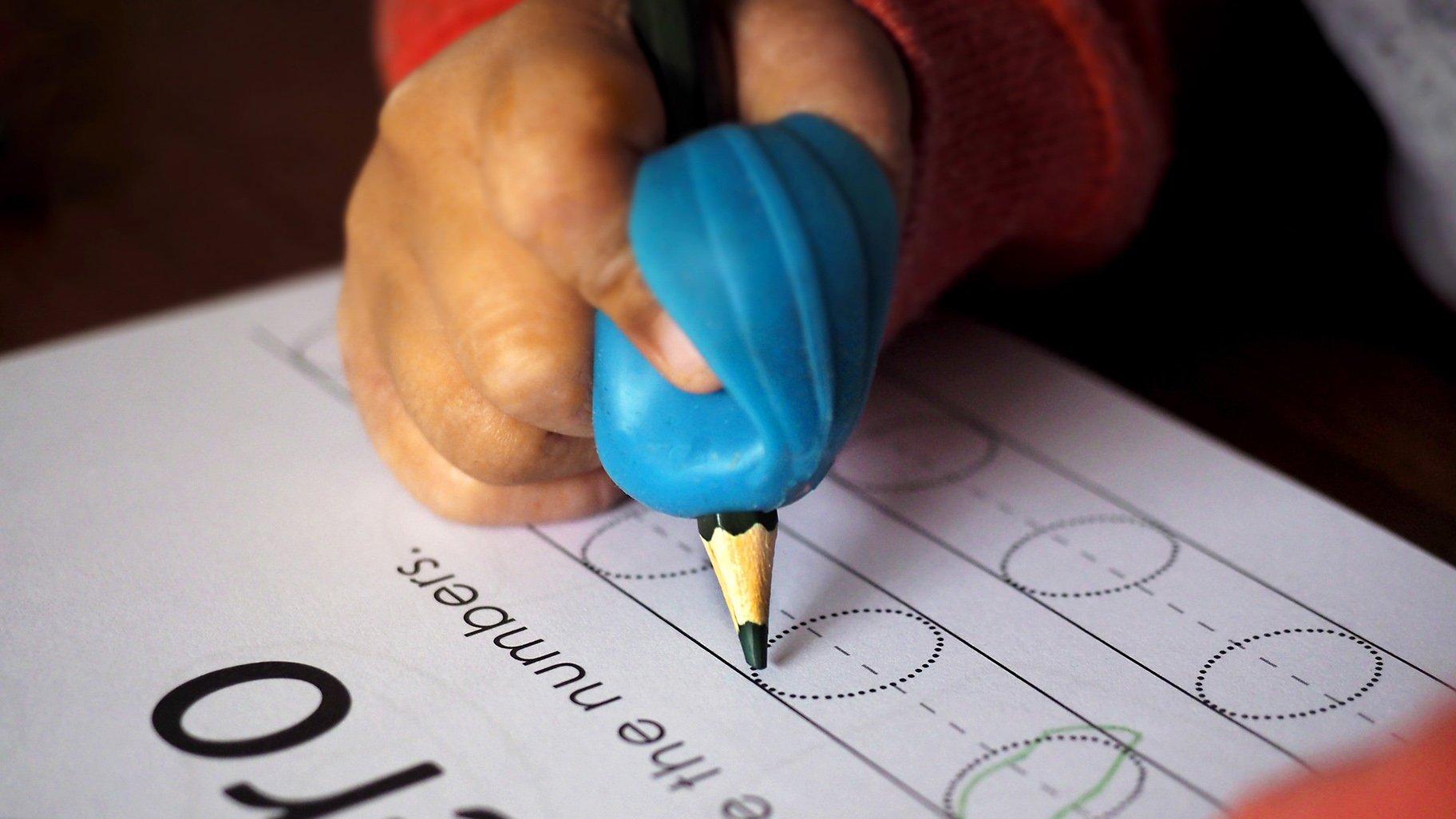 (ePhotographyAustralia / Pixabay)
(ePhotographyAustralia / Pixabay)
The state’s fiscal year 2023 budget includes $598 million, a $54.4 million increase from FY22, for early childhood education.
“Gov. Pritzker is a lifelong advocate for early childhood education and has worked to increase funding and expand access for child care and early childhood education,” a spokesperson for Gov. J.B. Pritzker said in a statement.
The state has also used federal pandemic relief funds to support child care programs. According to the Pritzker administration, $978 million in pandemic relief funding has reached more than 12,000 child care providers with more than 85% of eligible child care centers and 60% of licensed child care homes receiving direct relief.
Since the beginning of his administration, Pritzker has increased funding for the Child Care Assistance Program (CCAP), which is one state program that subsidizes the cost of child care for working families and serves nearly 100,000 children and has a budget of $1.17 billion across state and federal resources for FY23, according to a spokesperson.
“These investments were made to ensure Illinois is the best state in the nation to raise young children,” a spokesperson said in a statement, “and the Governor intends to continue working to increase these critical investments in years to come.”
Starting Friday, income eligibility requirements for CCAP will be increased to include families with incomes below 225% of the federal poverty line (up from the previous limit of 200%), or up to $62,437.50 for a family of four, and increases the eligibility limit at redetermination to 275% of the federal poverty line (up from 250%), or up to $76,312.50 for a family of four. (Families receiving CCAP subsidies must redetermine their eligibility every 12 months. If their wages rise above the eligibility limit – 225% of the federal poverty line – due to a raise, they can continue to receive CCAP subsidies if their income remains below 275% of the federal poverty line.) That change could increase the number of children served by up to 20,000, according to state officials.
While the program does have a copay, Pritzker’s administration has taken steps to make CCAP more affordable, according to Bethany Patten, associate director of programs for the Illinois Department of Human Services’ Division of Early Childhood.
“In the past year, Gov. Pritzker has lowered copays to $1 for a number of families, including families under 100% of the federal poverty line,” she said, adding copays for CCAP-eligible families with a parent or guardian working in child care will also be lowered to $1 starting Friday.
Copays have also been eliminated for families experiencing homelessness and are capped at no more than 7% of a family’s income, according to Patten.
But that still leaves many parents like Suarez Nieto, who doesn’t qualify for subsidized care, paying tens of thousands of dollars, according to Seibert.
Calls for universal child care, increased worker wages
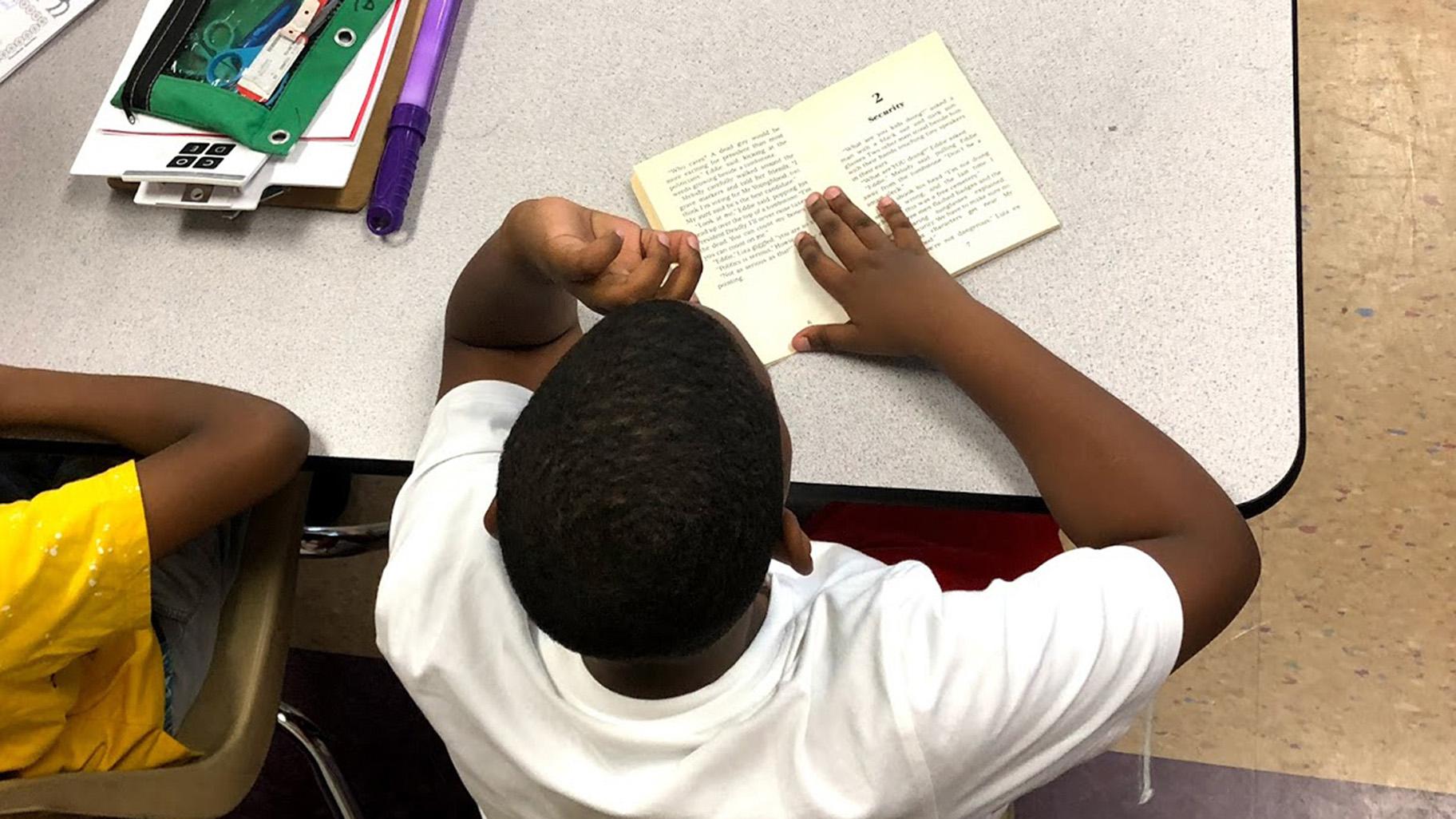 (Brandis Friedman / WTTW News)
(Brandis Friedman / WTTW News)
“Parents are paying so much more than they can afford,” said Seibert of SEIU Healthcare Illinois. “We’re all very fortunate to live in a state where many elected officials and leaders are looking at how to improve the child care system, and we really want to raise up the need to expand access to child care to put Illinois on the path to having a fully public, universal child care system for all families that also respects child care workers.”
A spokesperson for Pritzker did not address WTTW News questions about whether the governor supported increasing taxes on corporations and wealthy individuals to fund a universal child care system in Illinois as the coalition has proposed.
Advocates are also calling for child care workers to be paid a living wage, saying that goes hand-in-hand with ensuring child care is affordable for all.
“We can’t solve one problem without solving the other,” Seibert said.
The median hourly wage for an early childhood teacher in 2019 was $13, and that rate was only $17.79 for an administrative director, according to the report, which also found nearly 20% of early child care educators in Illinois live in poverty.
Riverdale resident Tahiti Hamer has been working as an early childhood educator for more than 20 years. “It was my calling,” she said. “I believe in educating young minds.”
Hamer, who works as an infant and toddler teacher at the North Lawndale YMCA, says she makes $22 an hour. “That’s roughly $45,000 to $47,000 a year – that’s still nothing to really live off of when you have the cost of living going up, gas prices are going up, food prices,” she said. “How are you supposed to survive off of $45,000 a year? Not to mention if you have kids and have to pay for child care.”
Low wages make it challenging to recruit and retain staff, according to advocates and business owners.
“I have three staff, and it is very, very hard to get reliable people,” said Tita Jackson, who has run TJ’s Heavenly Angels Inc. out of her Chatham home for the past 21 years.
Late last year, the state announced $300 million in relief grants to support child care providers statewide, with grants ranging from $10,000 to $25,000. In effort to retain and recruit workers, the Strengthen and Grow Child Care Grant program requires at least 50% of funds must be “invested in new personnel and workforce initiatives, with a focus on increasing compensation and benefits,” according to a press release announcing the program.
Pandemic relief funds have allowed Jackson to increase employee pay to $14 an hour, which she says is inadequate.
“$14 an hour is not enough. It’s really hard to keep staff,” she said. “I need someone who loves what they’re doing and works well with kids and isn’t just looking for a paycheck.”
Hamer is also concerned about attracting people to the profession.
“The future of this industry if we don’t make drastic changes is scary, really scary because we’re not going to have teachers here to teach the kids,” she said. “(People) say we’re asking for more money, but I wish people would keep in mind that doctors, lawyers – anyone in these kinds of professions – it took someone to teach them. A teacher had to teach a child for them to grow up and become what they are, and yet we’re the lowest paid on the totem pole.”
Contact Kristen Thometz: @kristenthometz | (773) 509-5452 | [email protected]

